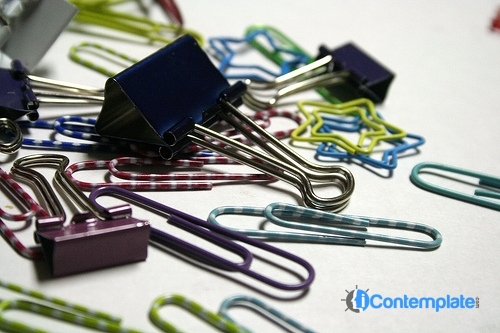When you start your own small business and start hiring employees, it can be all too easy to focus on the supplies you need to get the job done, ignoring some of the more basic things that need to be taken care of. As you build out your office, warehouse, factory or other workspace, you need to make sure that you not only supply truly everything that your employees will need, but that you also have extra supplies and replacement parts on hand so that work doesn’t stop for minor reasons.
What follows are supplies you’ll need to stock in your small business.
Basic Necessities
- Spare light bulbs
- Toilet paper
- Soap for the restroom
- Paper towels for the restroom
- Cash register tape
- Any preprinted paperwork
Office Supplies
- Pens and pencils
- Paper clips
- File folders
- Printer paper
- Notepads
- Staples, and at least one extra stapler
- Tape
- Sticky notes
- An extra phone
Computer Supplies
- An extra monitor
- A couple extra mice
- A keyboard
- Extra connectors and power cables
- If you use laptops in your office, an extra battery
- Printer toner or ink
Cleaning Supplies
Some cleaning supplies – like brooms and mops – won’t need to be replaced until (and unless) they break or break down. Others, though, should be well-stocked enough that you never run out of them.
- Glass cleaner
- Toilet cleaner
- Paper towels
- Vacuum sweeper bags (if needed)
- Garbage bags
Break Room Supplies
- Plastic ware
- Paper plates
- Napkins or paper towels
- Paper or Styrofoam cups
- Coffee, creamer, sugar and stirrers
Emergency Supplies
Emergency supplies include fire extinguishers, first aid kits and, if it’s required by local law, a portable defibrillator (AED). Make sure you have your fire extinguishers tested every year, and that your first aid kit stays well-stocked. Bear in mind that some first aid items can expire, so keep an eye out for expiration dates.
Industry-specific Replacement Parts
No doubt your industry uses some specific items that aren’t used in most other industries, and you’ll need extras or replacement parts for them. Take a look at any machinery you use and identify which part or parts are most likely to break (or are easiest to fix without calling a professional), from cotter pins and rollers to pump replacement parts and machine belts.
Also keep some extras of industry-specific supplies on hand to accommodate guests or forgetful employees. Extra hand tools, name tags, lab coats or work gloves might be appropriate for your business.
Though these lists might look like a lot of stuff, most of the items are relatively small and easy to store in a cabinet or under a sink. Some of them, too, might not even apply to your business; for example, if the company you lease your space from keeps the restrooms cleaned and stocked for you, you won’t need to worry about refilling your own hand soap.
An extra keyboard or monitor might seem unnecessary, but you may wish you had one when one of those important items fails.
What other supplies do small business owners need to keep a good supply of? Do you have a horror story that could have been avoided if someone at your company had heeded this advice?





